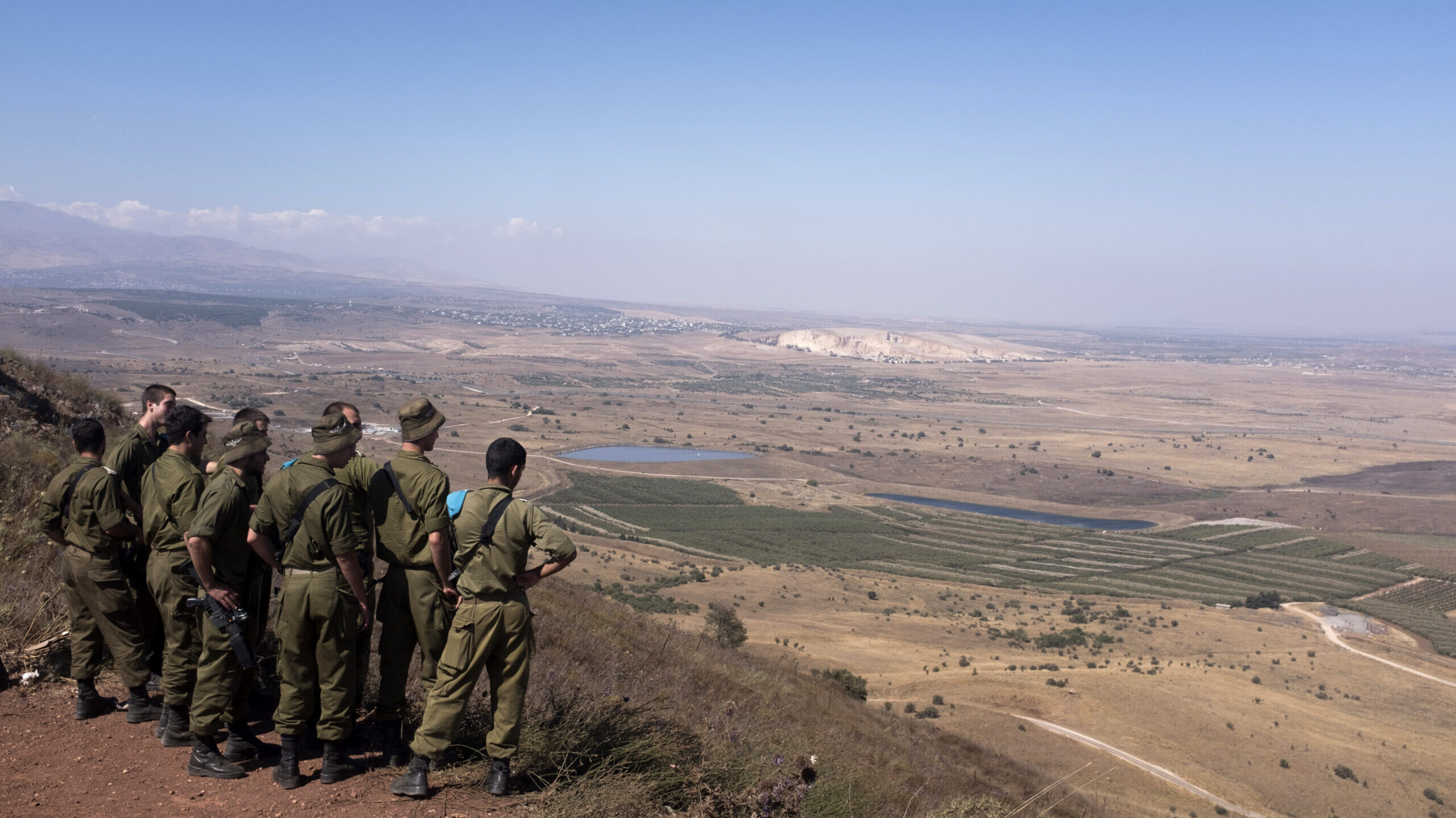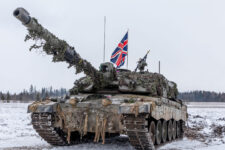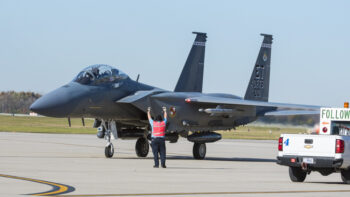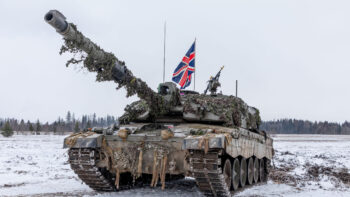
Israeli soldiers look out towards Syria from an observation next to the Syrian border on July 23, 2018 in Golan Heights, Israel. (Photo by Lior Mizrahi/Getty Images)
TEL AVIV: As Russia escalates violence against Ukraine, Israel is watching how Syria’s most powerful ally might change its posture in the Middle East — and how the US-led coalition may be responding in kind.
According to sources here, both Russia and the Western coalition recently bolstered their presence and supplies in Syria in the form of weapons, ammunition and, for the Russians, additional mercenary fighters.
“Russia, namely [Russian President Vladimir] Putin, may take a new approach to the military involvement in Syria, including the presence in the Mediterranean,” one Israeli defense source said.
Giora Eiland, who retired after leading the IDF’s operations division, told Breaking Defense he didn’t think Russia would currently seek to expand the conflict in Syria, but that could change if the Ukraine campaign continues to falter. Putin “can be very unpredictable and that should be taken into consideration,” Eiland said.
RELATED: To placate Russia, Israel told Baltic states it would block weapon transfers to Ukraine
In perhaps a sign of concerns on both sides, Gen. Frank McKenzie, head of US Central Command, is reportedly traveling to Israel Thursday to meet with top military and political figures about “operational coordination” with Israel in the region.
His visit follows one from mid-February by Russia defense minister Sergei Shoigu to Syria to inspect naval drills in the Mediterranean. Those drills included long-range nuclear-capable bombers and fighters equipped with hypersonic missiles, according to The Associated Press.
US Central Command did not respond to a request for comment today on McKenzie’s trip or the Russian or coalition moves in the Middle East.
The developments come as Israel attempts to walk an increasingly thin line in the Russia-Ukraine conflict — one in which it doesn’t want to antagonize either its close ally in the White House or those in the Kremlin who allow Israel to conduct operations against Iran-backed groups in Syria.
RELATED: Israel takes sides in Ukraine invasion, braces for consequences in Syria
Israel’s foreign minister did condemn Russia’s invasion last week, but the relatively strong language was an outlier in Israel’s measured approach. Today Israel voted with a US-supported resolution to call on Russia to cease hostilities and withdraw its troops, but offered a deputy to speak on Israel’s behalf, rather than Israel’s ambassador to the UN.
For his part, Eiland says Israel must stay out of it. “Israel is fighting against the Iranian nuclear aspirations,” he said. “Jerusalem must tell Washington that in this situation, it cannot afford to disagree with the Russians about its actions against Iran-related targets in Syria.”
Israeli planners have been concerned that siding with Ukraine would result in Russia blocking Israeli actions in Syria. Jerusalem has been waging an ongoing campaign of strikes against Iranian convoys of weapons moving from Syria to Iran-backed Hezbollah in Lebanon and Houthi fighters in Yemen. The operations require de facto approval from Russia, which controls the airspace in Syria.
However, sources told Breaking Defense that in the week since Israel’s statement of support for Ukraine, no changes to operations have occurred so far.
Such a geopolitical balancing act may become impossible to maintain, as the Russian campaign has increasingly claimed civilian lives — some from weapons the Russians tested in battlegrounds of Syria. Human Rights Watch, for instance, days ago alleged Russia had used a version of a cluster bomb in Ukraine that was previously used in Idlib in 2020. A senior US official told reporters today they could not confirm the Russian use of cluster munitions.
“The Shoigu visit makes clear a number of realities about the impact of Russia’s intervention in Syria and the way it presaged, and prepared the way, for what is happening in Ukraine,” former US ambassador to Bahrain William Roebuck wrote for The Arab Gulf States Institute in Washington. “It also provides hints of the type of challenges Russian President Vladimir Putin wants to make to the U.S.-led, rules-based international system that many countries, including in the Gulf, have benefited from… The Syrian intervention helped to give Russia the confidence it could intervene in a decisive fashion and challenge the West’s response.”
As for the global boycott that’s beginning to choke the Russian economy, that may push Moscow closer to Damascus, one of just five countries that voted against the UN resolution today.
France, Germany ink deal on way ahead for ‘completely new’ future European tank
Defense ministers from both countries hailed progress on industrial workshare for a project that they say “will be a real technological breakthrough in ground combat systems.”

























